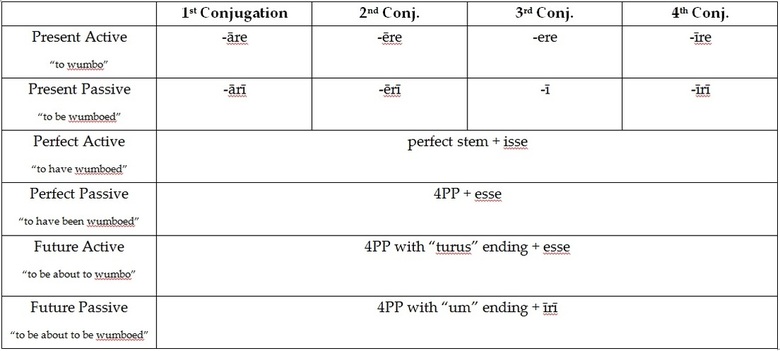INFINITIVES IN ENGLISH
An infinitive is the form of a verb that means "to wumbo." (In this case, substitute "wumbo" for any English verb you want.) Examples are "to run," "to talk," "to punch," "to defenestrate," and so on.
We might think of an infinitive as just another type of verb, but really, it's kind of halfway between a noun and a verb. To see why, look at the sentence "I want to run." To run is the infinitive in that sentence. It is describing the action of running as a concept, and it is presented as a thing that you want, rather than an action being completed in the sentence. So it's actually more like a noun and not a verb.
More Examples:
She really loves to sing. I don't mean to be rude, but you smell bad. Give him a chance to play, Coach.
We might think of an infinitive as just another type of verb, but really, it's kind of halfway between a noun and a verb. To see why, look at the sentence "I want to run." To run is the infinitive in that sentence. It is describing the action of running as a concept, and it is presented as a thing that you want, rather than an action being completed in the sentence. So it's actually more like a noun and not a verb.
More Examples:
She really loves to sing. I don't mean to be rude, but you smell bad. Give him a chance to play, Coach.
INFINITIVES IN LATIN
In Latin, the infinitive is the second principal part of a verb. Look at the principal parts of these verbs. The infinitives are highlighted for you.
invītō, invītāre, invītāvī, invītātus
terreō, terrēre, terruī, territus
accipiō, accipere, accēpī, acceptus
custōdiō, custōdīre, custōdīvī, custōdītus
You can see that there are four different possible endings of the infinitive: āre, ēre, ere, and īre. These four endings are how we organize verbs into categories; each category is called a conjugation, and the conjugation that a verb belongs to basically tells us how that verb will behave in different grammar situations.
Infinitives come in different voices and tenses, just like verbs, although they do not have different persons because they have no need for them. Here are all the different possible voices and tenses of infinitives.
invītō, invītāre, invītāvī, invītātus
terreō, terrēre, terruī, territus
accipiō, accipere, accēpī, acceptus
custōdiō, custōdīre, custōdīvī, custōdītus
You can see that there are four different possible endings of the infinitive: āre, ēre, ere, and īre. These four endings are how we organize verbs into categories; each category is called a conjugation, and the conjugation that a verb belongs to basically tells us how that verb will behave in different grammar situations.
Infinitives come in different voices and tenses, just like verbs, although they do not have different persons because they have no need for them. Here are all the different possible voices and tenses of infinitives.
IRREGULAR VERBS
There are also some verbs in Latin called "irregular verbs" that don't follow the normal grammar rules and don't look like other verbs. Their infinitive forms look unusual as well, and these verbs are not actually part of any particular conjugation. (Click here for more information on how the different forms of those verbs work.) Here's what their infinitive forms look like:
esse – “to be” posse – “to be able” ferre – “to bring” velle – “to want” nolle – “not to want” malle – “to prefer”
esse – “to be” posse – “to be able” ferre – “to bring” velle – “to want” nolle – “not to want” malle – “to prefer”

